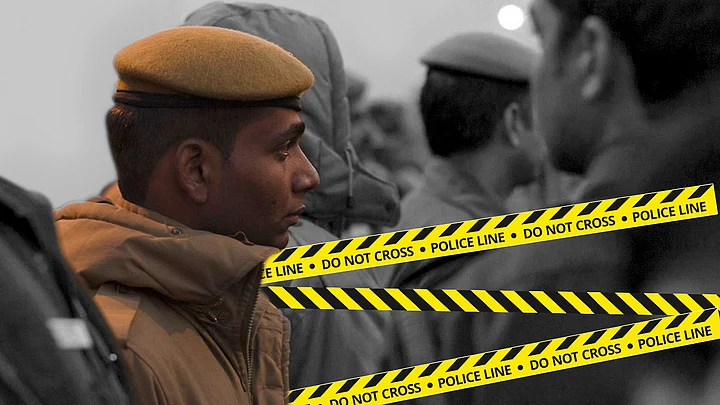What do Jessica Lal, Priyadarshani Mattoo and Sheena Bora have in common? They were all innocent women whose lives were cut tragically short by mindless violence. Not by unknown
professional criminals, but by ‘responsible’ adults who enjoyed the benefits of money and power. These heinous crimes were possibly nothing more than rash acts of petulance, or motivated by malicious intent.
Another characteristic feature of these barbaric crimes was the unprofessional investigation. Which raises the question, are Indian investigators competent enough, both mentally and technologically, to handle sensitive cases where there is enormous public interest and outrage over the inhumanity perpetrated on young female victims? There is a positive, as well as a negative aspect of this issue.
Tragedy of Indian Police
The Indian police has had a history of successes and failures, wherein an alibi of political interference has been put to use to avoid accountability. The problem is that an average Indian policeman often gets away by pointing a finger at an uncultivated local politician, who is made to pay for his real as well as imaginary acts of venality and indiscretion.
The bottom line is, the average crime investigator in our country often leaves considerable room for criticism through his laid back attitude, at times stemming from the expectation of illegal gratification. This is the tragedy of the Indian crime scene.
Disregard for Rules
One fundamental flaw is the unscrupulous disregard for the Standard Operating Procedure (SOP). Apart from what is laid down broadly by the Criminal Procedure Code (CrPC) 1973 (amended from time to time), the state police has a Standing Order which is clear in its instruction on how to proceed when a crime is reported at a police station. The picture is indeed startling because an average station – especially in rural areas – has only a small posse of police officers on hand to handle a complaint, not even mentioning the issue of responding professionally and lawfully.
The First Information Report (FIR) is a sacred document that records basic details of a crime and carries tremendous legal sanctity. It is widely known that many police officers take several hours to file an FIR, because of the unwarranted desire to shape a case along the lines a court would expect. As a result, many FIRs read artificially straightforward, something that raises doubts in the minds of the judiciary from the lowest level and up to the level of the Apex Court, if ever a case goes up to that dizzy height.
Many policemen do not understand that the FIR is a mere account of a case as is known to the complainant or the police officer who is the first official to take cognisance of a case by visiting the site of the alleged crime. It is enough if the FIR gives basic details, verified or unverified. The demand is it should be credible and complete with all the necessary details. The average policeman does not understand this basic principle. As a result he tries to fill in the details ( ‘padding’ is the most commonly known expression) which are not available at the moment of filing, and, as a result of which, the defence counsel derives plenty of ammunition to shoot at the prosecution during the trial.
What Ails Criminal Investigation
- One
fundamental flaw in crime investigation by Indian police personnel is the
unscrupulous disregard for the Standard Operating Procedure.
- A
simple thing as filing an FIR becomes a cumbersome task as policemen try to
pad it up with details not available at that point of time.
- Even
some of the police training centres are woefully inadequate in terms of quality
of instructors.
- Another
grave shortcoming is the failure to protect the scene of crime leading to loss
of crucial piece of evidence at times.
SOP For Filing An FIR
The judiciary is an accomplice to this. Some uninformed magistrates and judges tear up FIRs on questionable grounds alleging that they are bald in terms of details. One consequence is that the policeman at the station becomes nervous and will not draft an FIR for many hours, and sometimes days together, to lend perfection to a document that does not cry for it.
This is a grievous shortcoming that can be set right only through the formulation of guidelines which takes into account the rulings of the High Courts and the Supreme Court. The courts lay down that an FIR need not be too comprehensive but merely put down facts available at that point of time to the complainant.
A lot can be done at training institutions to make police personnel at the lowest tier cultivate some skill and finesse in this regard. The fact is, some police training centres in the country are really good and many are woefully inadequate in terms of quality of instructors. This is despite New Delhi’s generous contribution to the states by way of financial grant and expertise at the National Police Academy, Hyderabad and the Bureau of Police Research and Development of the Union Home Ministry.
Fundamental Errors by Policemen
Another grave shortcoming is the failure to protect the scene of crime immediately after the occurrence. The Aarushi case is an example, where the UP Police permitted all and sundry, including the media, a free raid of the Talwar household causing irreparable damage to the quality of evidence.
Another common error is to secure and preserve the material evidence collected at the scene. I recall how the accused in the Mattoo case received undeserved benefit of the doubt just because the chain of action of collecting crucial evidence was broken after the CBI took over the investigation. One can go on listing the fundamental errors that the field policemen commit while investigating major crime.
(To be continued...)
(The writer is a former CBI Director)
Also read:
Let’s Try ‘Community Policing’ - The Easier Way to Prevent Crime
Let There be a Law That Ensures Protection to Genuine Witnesses
